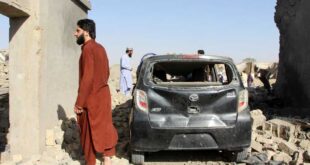Farzad Ramezani Bonesh
Senior Researcher and Analyst of International Affairs
Past relations between the two nations:
Qatar is a country located in the southwest of Asia, in the east of the Arabian Peninsula and southern part of the Persian Gulf. Qatar is in fact a small peninsula surrounded by the sea from the west, north and east. It has a common land border with Saudi Arabia and a sea border with Bahrain, Iran and the United Arab Emirates.
Qatar gained independence in 1971 and Iran was among the first countries that recognized its independence. In the 1970s, the Qatari government sought to benefit from Iran as a country that could guarantee security and stability in the region. The following article examines the reasons for Qatar’s continued positive outlook on relations with Iran.
Future economic outlook and ensuring growth
In fact, Qatar was an undeveloped country in the past, but with the advent of Sheikh Hamad, it has tried to accelerate the pace of progress in various areas in line with the 2030 National Vision Document. Qatar’s continued sanctions by four Arab countries have also contributed to the fluctuation and even slowdown of Qatar’s GDP growth, so the country managed to overcome this problem by expanding economic relations with Iran. The Qatari authorities, from the very beginning of the sanctions, tried to stay away severe consequences of the sanctions by keep themselves close to Tehran from the. Therefore, Iran’s trade relations with Qatar expanded widely, and shipping costs from Qatar to Iran declined.
Gas and Energy Diplomacy
Since energy diplomacy is regarded as a tool for achieving goals and interests, Doha has been pursuing a variety of policies since 2016 to get access to new trans-regional energy markets. Therefore, by relying on energy, it has sought to attract international companies and countries to enhance its capacity. In addition, although Iran and Qatar are competitors in gas exports, Iran’s presence in the gas exporting countries alongside Qatar and Russia could safeguard the interests of both countries. Qatar also prefers to be an important player in global gas exports, so this goal is more accessible in light of its positive relationship with Iran and maintaining security in the region. In addition, since Iran and Qatar share a common gas field (South Pars), continued cooperation in this area is beneficial to both players.
Iran Card and Political Assistance against Riyadh
Saudi Arabia, the United Arab Emirates, Bahrain, and Egypt cut diplomatic ties with Doha in June 2017 due to what they call its support to terrorism. But Qatar has sought to expand its relations with other regional governments and seek political assistance. Qatar-Iran relations have grown and been at their best for the past four decades. According to Doha, “Iran as Qatar’s neighbor is part of the geography of the region. At the same time, Qatar is also trying to maintain its relations with the trans-regional powers including the US and the Europeans in the Middle East. Also it pays attention to the influential regional actors as the main pillars, such as Iran and Turkey, and benefit from this against Riyadh.
Decreasing the Security Concerns:
One of the strategic goals of the Qatar efforts has been the concern of survival and security. This has led the country to enhance its survival and security by expanding and strengthening its ties with various actors and to leverage the potential of good relations with them. In the past decade, in view of the continued regional rivalry between Iran and Saudi Arabia and Qatar’s security concerns, Doha also sees continued security cooperation and counter-terrorism and security and defense relations with Tehran as an opportunity for better security in the region.
Playing a mediating role in political developments
Trying to turn Qatar into a center for regional diplomacy and mediation in the region is one of the most important strategies and priorities of Qatari politicians in the region. For the past decade, Qatar has sought to mediate and host mediation on Arab-Israeli problems, Hamas and Fath, Iran and the Gulf Cooperation Council, and even Iran and the United States. Their success or failure has increased Qatar’s political weight in the region. Today, Qatar can also be the driving force behind Iran’s growing engagement with Saudi Arabia and the United States. In addition to Qatar’s non-hostile view to Iran’s nuclear issue, Iran’s foreign policy in the region could further enhance Doha’s relationship with Tehran. In the wake of mounting tensions between Iran and the United States in recent months, Qatar has sought to mediate between the US president Donald Trump and Iranian officials, and prevent a sharp Iran-US conflict in the region. In fact, Qatar has sought to play an important role in reducing tensions between Tehran and Washington and waging a war of unknown dimensions in the region.
vision:
Although the two countries’ differing views on the issue of Palestine, the presence of the United States in the Persian Gulf, the Iranian islands, Israel, etc. are among the two countries’ disagreements, but there does not appear to be a major shift in Qatar’s approach to Iran. However, even negotiations to resolve tensions between the bloc consisting of Saudi Arabia, the United Arab Emirates, Bahrain and Egypt and Qatar on the one hand, and the prospect of a possible reduction or abolition of the Arab blockade against Qatar, could practically not do much harm to Qatar’s relations with Iran, and could not change Doha’s current approach to Tehran.
Farzad Ramezani Bonesh is a writer, senior researcher and analyst on regional issues, especially in the Persian Gulf and South Asia. He has previously served as chief editor of research desk at several Iranian research centers. He has written hundreds of research articles, short analysis and journalism in Persian and English. He has had many interviews with Iranian and international media such as Aljazeera , RT Arabic, Al Arabi and others.
 Geostrategic Media Political Commentary, Analysis, Security, Defense
Geostrategic Media Political Commentary, Analysis, Security, Defense




